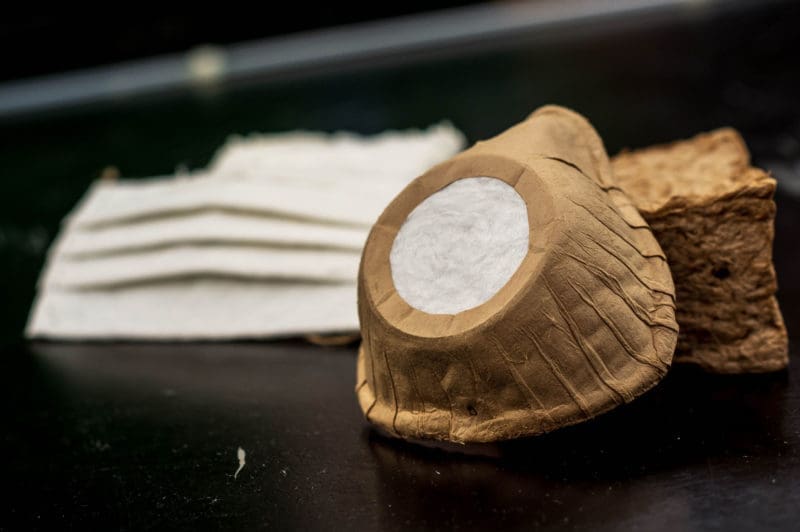Researchers in the BioProducts Institute at the University of British Columbia (UBC) have designed an N95 mask that can be sourced and made entirely in Canada.
The new mask, dubbed Canadian-Mask or Can-Mask, is possibly the world’s first fully compostable and biodegradable medical mask.
The mask frame is made entirely from Canada’s westernmost province of British Columbia wood fibres from sources such as pine, spruce, cedar and other softwoods. A good alternative to the synthetic masks currently in use.
Disposable masks and gloves are already polluting city sidewalks and potentially entering our rivers and oceans, there was urgent need of a biodegradable option to avoid making a massive impact on our environment.
The Can-Mask is a promising solution, as it pairs British Columbia wood which has future potential for advancing bioeconomy and creating jobs, with British Columbia industry expertise and technology developed and tested at UBC.
Developing the mask took the combined efforts of a multidisciplinary team that included researchers from the faculties of applied science, forestry and science at UBC.

International supply lines for medical masks can break down and create local shortages. Hence, they decided to design a mask that uses local materials, is easy to produce and inexpensive, with the added bonus of being compostable and biodegradable.
One prototype uses a commercial N95 filter on the front of the mask, the other uses a filter specially designed by the UBC team from wood-based products.
Both prototypes are currently being tested to ensure they meet health industry specifications for fit and permeability, with plans to apply for Health Canada certification in the near future.
Referrences:
https://www.fibre2fashion.com/news/apparel-sustainability-news/canadian-researchers-develop-biodegradable-medical-mask-267445-newsdetails.htm

